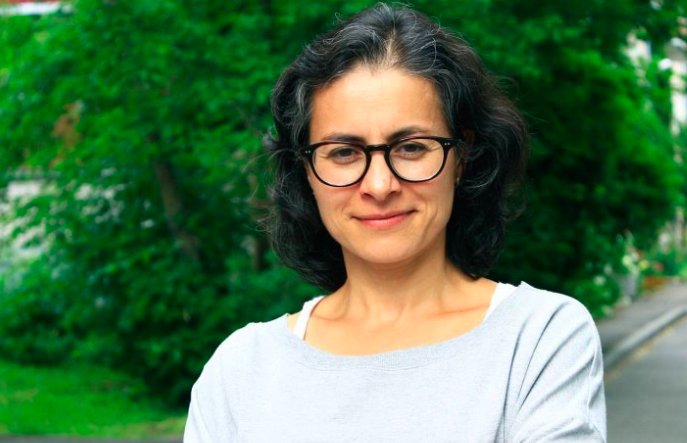A former Muslim Amnesty International staff member is taking the human rights organisation to an employment tribunal, alleging institutional Islamophobia and discrimination.
Aisha Jung claimed she was fired for raising objections to Amnesty’s classification of Russian opposition leader Alexei Navalny as a ‘prisoner of conscience.’
She argued that Navalny had made anti-immigrant remarks in the past and incited violence against Muslims.
Jung, who worked for Amnesty from 2005 until she was sacked in May 2022, is taking the organisation to the tribunal this month alleging whistleblowing, religious and disability discrimination.
“I worked there 17 years and in that time experienced Islamophobia several times but never like this, never so extreme and from the leadership,” Jung told Islam Channel.
“For me, it was simply that the organisation’s leadership, my programme, my team, my closest colleagues, were willing to promote, at the highest possible levels of the organisation, a man who had advocated racist hatred and violence over several years.
“I am confident there is no other example in the organisation’s 60+ years of a person who has such an established record of advocacy of racist hatred and violence who has been given this status,” she added.
Amnesty initially designated Navalny as a ‘prisoner of conscience’ after his January 2021 arrest in Russia. But the organisation withdrew the designation citing “hate speech” from the mid-2000s.
But, after a public outcry, the designation was restored in May 2021, along with an apology to Navalny. Amnesty justified its decision by saying, “opinions and behaviour may evolve over time.” But Jung claims there is no evidence Navalny has renounced his past statements.
Jung highlights a 2007 video of Alexei Navalny ranting against “cockroaches” while images of men who appear to be Muslim flash on the screen. In the video, he also shoots an actor portraying an attacker who appears to be wearing traditional Muslim clothing. Other footage shows Navalny dressed as a dentist and seemingly comparing immigrants to rotten teeth.
“It is crucial to understand that this video was only part of Navalny’s years of far-right nationalist rhetoric, which he has never publicly apologised for or redressed,” said Jung.
“A culture of white privilege”
Although she acknowledges that Russia may have targeted Navalny for his political views and that he should be freed, she does not believe that he deserves to be recognised as a ‘prisoner of conscience.’
“From the outset, I said I wanted Amnesty to withdraw the title of ‘prisoner of conscience’ from Navalny, to publicly apologise to me, to the Muslim community and all those who suffer from discrimination,” she added.
When Jung attempted to bring up the issue with Amnesty leadership, she claimed she was “gaslit, ridiculed and eventually sacked,” forcing her to take the matter to a tribunal.
She highlights the Howlett Brown report released in 2021, which found a culture of white privilege with incidents of overt racism in the organisation, including amongst senior staff.
“The organisation’s Secretary General is white, the Senior Leadership team are predominantly white and the organisation’s membership is predominantly white,” said Jung.
“There are no Muslims in the senior leadership team or amongst the team that was put together to review the changes in the Navalny decision. Nor were any anti-Islamophobia organisations consulted.
“They changed their decision because they could, because their privilege allows them to be unaffected by such decisions.”
She uses the example of Uganda’s main opposition leader, Bobi Wine, who she said was denied the status because of past controversial comments, which he later apologised for.
“The decision to deny ‘prisoner of conscience’ status to Bobi Wine was driven by the London office, who overruled the local office in Kenya.
“This overriding local expertise and decision-making of offices in the global south by the London office, the de facto imbalance of power between predominantly white-led global north offices compared to Amnesty’s global south offices, was one of the issues drawn out in the Howlett Brown report,” she added.
Amnesty’s response
A spokesperson for the organisation told Islam Channel: “Amnesty disputes that it has treated Ms Jung in the manner alleged, or that she has been treated unlawfully in any way.”
The spokesperson said Amnesty’s decision to stop using the ‘prisoner of conscience’ term for Navalny – an internal decision not intended to make public – was taken by the Russian government and its supporters to “further violate Navalny’s rights.”
As a result, it revised the designation of individuals as ‘prisoners of conscience’ to clarify that it is “not meant to exclude a person from designation …solely based on their conduct in the past when unrelated to their prosecution and imprisonment.”
On Navalny’s previous comments, the spokesperson said they were “reprehensible” and that Amnesty are “not endorsing his views, past or present including his political programme, but are highlighting the urgent need for his rights violations, including arbitrary imprisonment and denial of access to independent medical care, to be recognized and acted upon by the Russian authorities.”
The spokesperson said Amnesty heard from different voices, including minorities and those who disagreed with the designation being removed in the first place and added that the organisation has “a strong track record calling out Islamophobia and discrimination against minorities.”
“We take our commitment to becoming a fully anti-racist movement very seriously and have done significant work towards this end since we commissioned our independent reviews into racism and discrimination,” said the spokesperson.


















